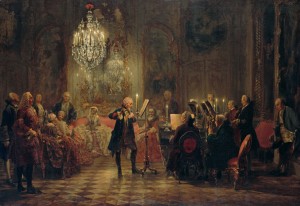Happy March!
The month of March is named for the Roman god of war – Mars. And of course, Mars is the planet where the aliens in “War of the Worlds” came from. Don’t worry, though, we’ll conquer those aliens and colonize Mars soon enough.
Mars is awesome. There, I said it. Gustav Holst (1874-1934) must have thought so, too, because he wrote a kick-ass piece of music about it. This selection comes from a larger work called “The Planets” (what a bizarre name for a suite of pieces about Roman gods.) Seriously though, despite the astronomical name, the piece is more about astrological matters – think horoscopes. Each planet, er, god, has its own personality.[/twocol_one_last]
And I’m pretty sure that the great composer John Williams stole borrowed from this piece when he wrote the film score to Star Wars.


Recent Comments